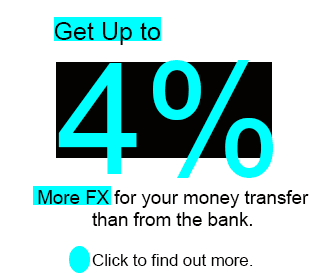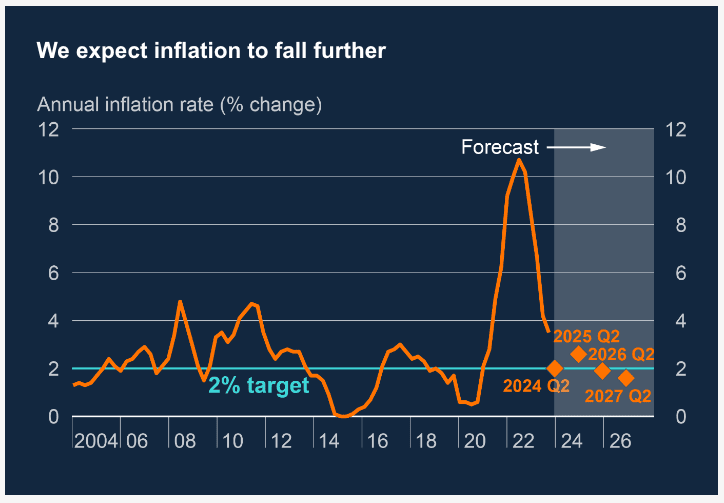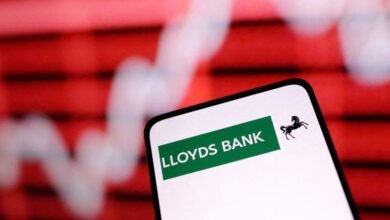Pound Sterling Falls Against Euro & Dollar as Market Senses Rate Cuts Nearer


File image of Andrew Bailey, credit: Bank of England.
The British Pound fell as an immediate reaction to news another member of the Bank of England’s rate-setting committee voted to cut interest rates. However, we expect losses to fade.
Dave Ramsden voted alongside Swati Dhingra to cut interest rates immediately, a sign that the Bank’s Monetary Policy Committee (MPC) is starting to lean towards lower interest rates.
But, the statement issued by the Bank was largely unchanged from that issued in March, which signals to us there is no smoking gun for a June cut. The Bank said, “monetary policy needs to be restrictive for an extended period of time until the risk of inflation becoming embedded above the 2% target dissipates.”
We, therefore, don’t expect a June rate hike to be fully ‘priced in’ as a result of today’s decision, which limits the downside potential in the Pound, particularly against the Euro.
The Pound to Euro exchange rate fell to 1.1605 in the wake of the decision, putting it near the previous day’s lows. The Pound to Dollar exchange rate fell to 1.2450, near April 24 lows.
The Pound’s initial fall can also be explained by what happened in the Bank’s latest set of economic forecasts: growth was revised higher, but inflation forecasts were lowered.
The Bank now forecasts inflation to read at 2% for the second quarter before moving up to 2.6% in a year’s time (previously it had expected inflation to rebound to 3.0%).
Image: Bank of England
Inflation then falls back to 1.9% in 2026. These signals forecast to the Bank that interest rates are currently too high.
By selling the Pound, the market says it has interpreted the Ramsden vote cut and the downgrade to forecasts as signs the Bank will cut interest rates in May.

Although the Bank’s forecasts signal inflation is trending lower there remain concerns that inflation in the services sector of the economy remains too high, currently at 6.0% y/y. If services inflation doesn’t come down, headline inflation will potentially remain above 2.0% and ultimately prevent it from falling back to 2.0% sustainably.
Because services inflation is largely a function of high wages, the Bank continues to place emphasis on upcoming job and wage reports.
If this month’s ONS release undershoots expectations, we would expect a June hike to become more likely, which would weigh on the Pound. But, a strong report would almost certainly knock the timing of such a hike into August.
This can support Sterling.
“We think some soft inflation and wages data may be enough to prompt it to cut rates at the next meeting in June, if not at the following meeting in August,” says Paul Dales, Chief UK Economist at Capital Economics.
Source link






